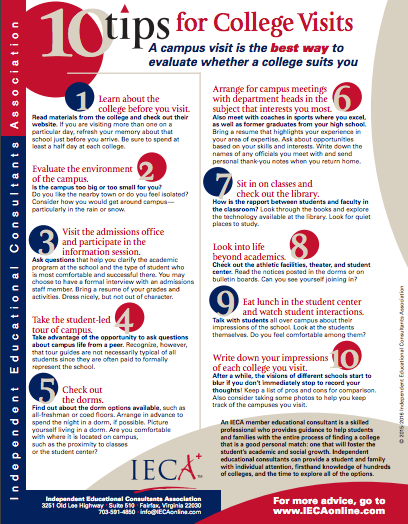A Note on the College Admissions Cheating Scheme

The Independent Educational Consultants Association (IECA) and its members (like us!) are committed to helping families find the most appropriate colleges for their students and assist families in navigating the application process. Following a comprehensive code of ethics, IECA members are professionals who understand and adhere to high ethical standards in all their interactions with clients and institutions and are compensated by and work exclusively on behalf of their client families.
In response to the breaking news of an FBI probe and Justice Department charges for 50 people—college officials from elite institutions, wealthy parents, coaches, and others—in a long-running admissions bribery scheme, IECA CEO Mark Sklarow said, “The charges presented today exemplify the intense anxiety that even some wealthy parents feel about their children being admitted to their preferred colleges.”
All parents and students should keep the following advice in mind as they begin their college search.
- The college search and application process should be a fun and exciting time for students and their families. If anyone in any setting is exerting pressure or causing undue anxiety and pressure, be cautious. If you are told someone has “inside” information, can pull strings, provide shortcuts to admission, or give you a special advantage (for a fee or otherwise), you are being misled.
- There are many great postsecondary options for every student, and no student should be made to feel that they must become something they are not to get accepted. The “best” school is the school that fits a student academically, socially, and financially. Being and presenting one’s authentic self and demonstrating one’s own talents and abilities is a way of ensuring the right college fit. This is central to what an ethical independent educational consultant does.
- The vast majority of admissions officers, school counselors, and IECs are ethical and compassionate professionals who dedicate their careers to advising students and families.
If you decide to seek help with the college search and application process outside of the school setting, ensure that you hire someone who is a member of a professional organization, such as IECA or NACAC, that requires them to abide by the highest ethical standards. A fully vetted independent educational consultant (IEC) will be solely concerned about an individual student’s well-being and helping to gain admission to a school where they will thrive and succeed on their own merits.
*Stay in the know! Subscribe for news, tips, and advice*

